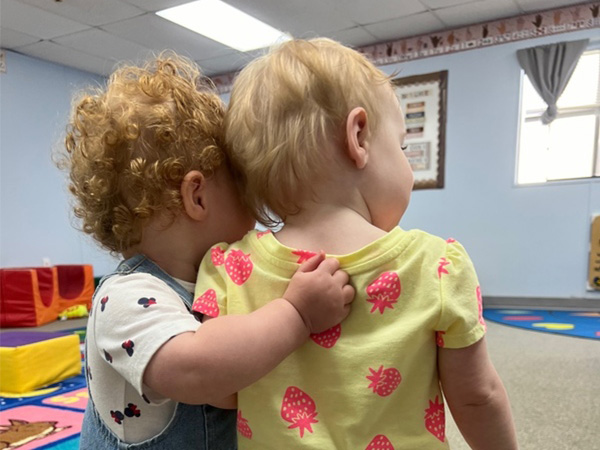
Everyone’s heard of the “terrible 2’s”, but 3 can be just as challenging! Here are some tips from the experts at the American Academy of Pediatrics to help everyone get through it and enjoy this exciting season of your little one’s development.
- Monitor yourself
- Take care of yourself first
- Make sure to address your own needs before trying to address anyone else’s! You will be a more effective parent if you yourself are well
- Yell less and love more
- Minimize raising your voice and try to praise your child’s successes as often as possible
- Give your undivided attention to each child in small, frequent doses
- Time is always in short supply, but focusing small amounts of time on each child helps them to feel connected and important
- Touch is important
- Give your child lots of snuggles and hugs
- Even when they are misbehaving to show them you love them no matter what
- Give your child lots of snuggles and hugs
- Take care of yourself first
- Expectations
- Set clear expectations for behavior
- Write out a list of simple rules that apply to everyone in the household
- Label behavior
- Acknowledge and label each of your child’s behaviors
- When their behavior does not meet expectations ask things like “Is that showing kindness?” or “Is this showing patience?”
- Acknowledge and label each of your child’s behaviors
- Demonstrate good behavior and healthy coping mechanisms!
- Be consistent
- Consistency is key with expectations and discipline
- Try to be on the same page with all of the caregivers in your child’s life in regards to rules, expectations, and discipline
- Consistency is key with expectations and discipline
- Praise effort often
- Be sure to praise your child’s successes large and small
- Praise effort as well!
- Consider a sticker/reward chart to create a visual for your child’s success!
- Use it often and get your child involved in placing the stickers on their chart
- Be sure to praise your child’s successes large and small
- Set clear expectations for behavior
- Anticipate and redirect
- Whenever possible, try to anticipate situations in which your child might struggle with their behavior
- Set clear expectations and start on a positive note
- Get creative with redirecting your child when things appear to be heading in the wrong direction
- Whenever possible, try to anticipate situations in which your child might struggle with their behavior
- A word on discipline
- Despite the best efforts and intentions, children will require discipline at times. Try to respond calmly and place them in time-out
- Designate a quiet place where your child can calm down and regain composure
- Remember that this time alone to think helps to avoid the cycle of:
- Designate a quiet place where your child can calm down and regain composure
Poor behavior + attention –> more poor behavior
- Set a timer and be clear this is time for them to quietly think about their feelings and actions
- Be like Elsa and let the (small things) go! After their time-out is complete, have a short discussion about what could have gone better and then move forward with a plan for success and a fresh start
- Despite the best efforts and intentions, children will require discipline at times. Try to respond calmly and place them in time-out
As always, if you have any questions or concerns regarding getting through your child’s third year, please contact your pediatrician. Here are some helpful links from the American Academy of Pediatrics:



